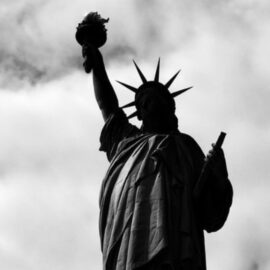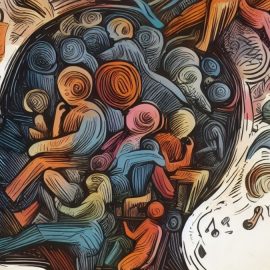

This article is an excerpt from the Shortform book guide to "Justice" by Michael Sandel. Shortform has the world's best summaries and analyses of books you should be reading.
Like this article? Sign up for a free trial here.
What is Immanuel Kant’s moral philosophy? How does reason relate to morality in Kant’s view?
Kant’s view of morality emphasizes reason above all else. According to Kant, actions aren’t moral unless you decide on them through pure, rational deliberation.
Here’s why morality stems from reason, according to Kant.
Kantian Morality
According to Kant, morality is underpinned by reason: If you don’t make a choice entirely through reason, then you’re making it due to innate instincts and preferences—things you have no control over. Therefore, that choice wasn’t freely made.
For example, if you work at your job to make money for groceries and a place to live, then Kant argues your choice to work isn’t freely chosen and therefore isn’t a moral action—it’s not motivated by your purely rational view of what’s morally best, but rather by your self-preservation instinct to seek food and shelter.
(Shortform note: Many psychologists challenge the idea that reason exists independent of personal beliefs and preferences. They suggest that a lot of what we think of as rational thought is actually heavily influenced by “confirmation bias,” or subconscious human bias toward our existing beliefs. For example, someone who believes they’re unlucky will subconsciously place greater significance on bad things that happen to them and less significance on good things that happen to them. The existence of confirmation bias seems to show that we can’t clearly separate our rational capabilities from our personal instincts—and therefore Kant’s definition of free choice (and by extension, morality) may be flawed.)
Kant explains that to freely make a moral choice, you must dutifully and unconditionally obey a moral law that you create for yourself. Or, to put it more simply, you must do what’s moral only because it’s the moral thing to do and not for any other reason.
Kant argues that to be entirely rational, moral laws must meet two standards (called the “categorical imperative”):
1) Moral laws must work universally. To test if a moral law derives entirely from reason, consider how it would function if everyone followed it. If it doesn’t work universally, then it’s based at least partially on personal preference rather than entirely on reason. For example, John is furious at his annoying neighbor and thinks, “I should hurt people who disrespect me.” However, if everyone dutifully followed that law, there would be massive and perpetual cycles of violence. Therefore, John’s law is based on preference and isn’t moral.
2) Moral laws can’t use rational beings as a means to an end. As previously explained, a moral law that you follow for its own sake has inherent value—you follow it because it’s the morally right thing to do, not because it gets you something else. Kant argues that human life is the same way: Rational humans live life for its own sake and not for some other external goal. And since we live just to be alive, then living must have inherent value. Therefore, Kant believes that moral laws must respect the inherent value of human life. This means recognizing that human life is an end in itself and not using others (or ourselves) as a means to an end.
For example, John wants to punch his annoying neighbor. However, if he did that he’d be using his neighbor as a means to the end of getting out his anger and feeling better about himself. Therefore, according to the categorical imperative, John punching his neighbor is immoral.
| Liberal Revolutions During Kant’s lifetime (1724-1804), new countries and revolutionary movements adopted liberal ideas into their governments. Let’s look at how two movements used (or didn’t use) ideas from Kant and people like him: 1) The United States of America formed after winning a revolutionary war against the United Kingdom in 1776. The revolutionaries used a lot of the ideas and language of liberalism, stating in the Declaration of Independence that all men have inalienable rights given to them by God. This is consistent with Kant’s view that people had inherent worth, and that moral laws (expressed here as political rights) must apply universally. However, the new government also allowed legal slavery of Black people to continue in the United States—a clear instance of using another person as a means to an end. Perhaps surprisingly, Kant didn’t see slavery as incompatible with the categorical imperative, as he believed that whites were inherently superior to other races. 2) Revolutionary France formed after a popular revolution toppled the French monarchy in 1789. In The Declaration of the Rights of Man and the Citizen, the revolutionary French government included many principles of liberalism in its constitution: that the purpose of government was to benefit the general will, and that laws and political rights must apply equally to all citizens. The declaration agrees with the categorical imperative’s emphasis on universal moral laws and views the government as a tool of the people generally, seeming to imply that the state wouldn’t use people as a means to an end. |

———End of Preview———
Like what you just read? Read the rest of the world's best book summary and analysis of Michael Sandel's "Justice" at Shortform.
Here's what you'll find in our full Justice summary:
- A philosophical look at the goal of our society and its laws
- What a moral and just government and society look like
- Sandel's suggestions for how to create a more moral world






